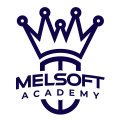The tech industry is booming, and with it, the demand for skilled developers is higher than ever. Landing your first junior developer role can feel like climbing a mountain, but with the right strategy and preparation, it’s entirely achievable. At Melsoft Academy, we’ve helped countless aspiring developers launch successful careers. This comprehensive guide will equip you with the knowledge and tools to navigate the job hunt and secure your dream junior developer position.
Assessing Your Skills and Strengths
Before diving into the job search, take stock of your current abilities. Honesty is crucial here. What programming languages are you proficient in? What frameworks or technologies are you familiar with? What are your strengths and weaknesses? Identifying your weaknesses early allows you to focus your learning efforts.
- Technical Skills Inventory: Create a detailed list of your programming languages (e.g., Python, Java, JavaScript, C++), frameworks (e.g., React, Angular, Node.js, Spring), databases (e.g., SQL, MongoDB), and tools (e.g., Git, Docker, Kubernetes). Be honest about your proficiency level for each – beginner, intermediate, or advanced.
- Soft Skills Assessment: Technical skills are essential, but soft skills are equally important in a collaborative environment. Rate your abilities in communication, teamwork, problem-solving, time management, and adaptability. Areas for improvement should be addressed proactively.
- Portfolio Development: Your portfolio is your most valuable asset. It showcases your skills and projects to potential employers. Include personal projects, contributions to open-source projects, or even well-documented code snippets. Quality over quantity is key; focus on a few strong projects that highlight your abilities. Consider hosting your portfolio on GitHub or a similar platform.
Targeting the Right Roles and Companies
The job market is vast. Focusing your search on roles and companies that align with your skills and interests significantly increases your chances of success.
- Job Board Exploration: Utilize job boards like LinkedIn, Indeed, Glassdoor, and specialized tech job boards. Use keywords relevant to your skills and desired roles (e.g., “Junior Frontend Developer,” “Python Junior Developer,” “Junior Full-Stack Engineer”).
- Company Research: Don’t just apply to any job; research the companies you’re targeting. Understand their culture, values, and projects. This allows you to tailor your application and demonstrate genuine interest. Look for companies known for their mentorship programs or supportive environments for junior developers.
- Networking: Networking is invaluable. Attend industry events, hackathons, and meetups. Connect with developers on LinkedIn and engage in online communities. Building relationships can lead to unexpected opportunities. Don’t be afraid to reach out to people for informational interviews; these conversations can provide valuable insights and potential leads.
- Consider Internships: If you lack professional experience, consider applying for internships. Internships provide valuable hands-on experience and can often lead to full-time employment.
Crafting a Winning Application
Your resume and cover letter are your first impression. Make them count.
- Resume Optimization: Tailor your resume to each job application. Highlight the skills and experiences most relevant to the specific role. Use keywords from the job description. Keep it concise and easy to read. Quantify your achievements whenever possible (e.g., “Increased website traffic by 20%”).
- Compelling Cover Letter: Your cover letter should personalize your application. Explain why you’re interested in the specific company and role. Showcase your passion for technology and highlight relevant skills and experiences. Don’t just reiterate your resume; tell a story that demonstrates your personality and enthusiasm.
- Online Presence: Employers often check candidates’ online presence. Ensure your LinkedIn profile is professional and up-to-date. Review your social media profiles to ensure they align with your professional image.
Acing the Interview Process
The interview process is your chance to shine. Preparation is key.
- Technical Preparation: Brush up on fundamental concepts in your chosen programming languages and technologies. Practice common coding challenges on platforms like LeetCode, HackerRank, or Codewars. Be prepared to discuss your projects in detail and explain your design choices.
- Behavioral Questions: Prepare for behavioral questions that assess your soft skills. Use the STAR method (Situation, Task, Action, Result) to structure your answers. Examples include questions about teamwork, conflict resolution, and problem-solving.
- Asking Intelligent Questions: Asking thoughtful questions demonstrates your interest and engagement. Prepare questions about the company culture, team dynamics, projects, and opportunities for growth.
- Following Up: After each interview, send a thank-you note expressing your gratitude and reiterating your interest.
Continuous Learning and Growth
The tech industry is constantly evolving. Continuous learning is essential for staying competitive.
- Stay Updated: Follow industry blogs, podcasts, and online communities to stay abreast of the latest technologies and trends.
- Embrace Challenges: Don’t be afraid to tackle challenging projects. Learning from failures is crucial for growth.
- Seek Mentorship: Find experienced developers who can guide and support your career development.
- Contribute to Open Source: Contributing to open-source projects is a great way to build your skills and portfolio while collaborating with other developers.
Handling Rejection
Rejection is a part of the job search process. Don’t let it discourage you. Learn from each experience, improve your application materials, and keep applying. Persistence is key. Analyze feedback you receive, if any, and use it to refine your approach.
Breaking into the tech industry as a junior developer requires dedication, hard work, and a strategic approach. By following these steps, focusing on your strengths, and continuously learning, you can significantly increase your chances of landing your dream job. At Melsoft Academy, we’re committed to supporting your journey. Contact us to learn more about our programs and how we can help you achieve your career goals. Remember, the tech world welcomes passionate and skilled individuals – and you have what it takes to succeed!


